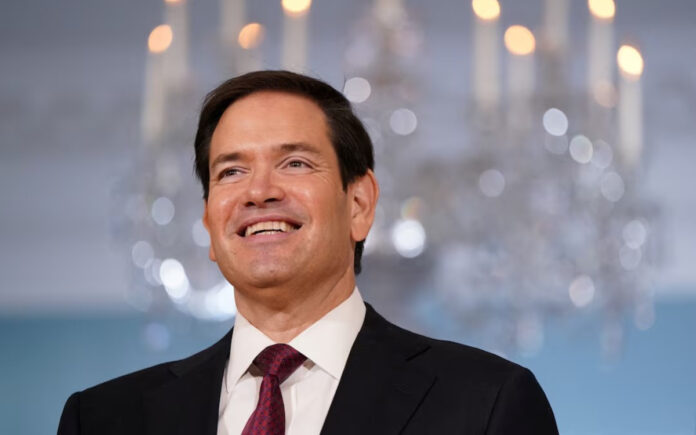Washington: The United States will begin “aggressively” revoking visas for Chinese students, particularly those linked to the Chinese Communist Party or enrolled in sensitive academic fields, U.S. Secretary of State Marco Rubio announced on Wednesday. The decision marks a significant escalation in the Trump administration’s immigration and national security agenda, which has increasingly focused on countering perceived threats from China.
The move, if implemented on a broad scale, could have wide-reaching consequences. Chinese students comprise a significant portion of the nearly 300,000 international students from China currently studying in the U.S., forming a crucial source of revenue for American universities and contributing to talent pipelines in industries such as technology, research, and innovation.
Rubio said the State Department will revise existing visa rules to tighten scrutiny of applications from mainland China and Hong Kong.
“The U.S. State Department will work with the Department of Homeland Security to aggressively revoke visas for Chinese students,” Rubio stated.
The Chinese Embassy in Washington has yet to respond to the announcement. However, China’s foreign ministry has previously warned of repercussions, vowing to “firmly safeguard the legitimate rights and interests” of its citizens studying abroad. This follows earlier tensions, such as the U.S. move to revoke Harvard University’s ability to enroll foreign students — a decision that a federal judge temporarily blocked.
While the U.S. has paused some aspects of its trade conflict with China, tensions remain high. China continues to be at the heart of President Donald Trump’s broader strategy of economic confrontation, which has reshaped global trade and heightened concerns of a new Cold War-like rivalry between the two powers.
According to the U.S. Department of Commerce, international students — with China and India accounting for more than half — contributed over $50 billion to the U.S. economy in 2023 alone.
University Links to China Under Rising Scrutiny
The State Department has broad authority over visa policy, including the power to revoke visas. The administration last week cited ties between Harvard University and China as part of the justification for revoking its foreign enrollment rights. Although Rubio did not elaborate on the scale of the visa revocations, even limited implementation could significantly disrupt the decades-long academic migration trend that began in the late 1970s.
U.S. universities have long attracted Chinese students who seek alternatives to China’s rigid and competitive education system. Many of these students are from affluent backgrounds and have historically stayed in the U.S. post-graduation, making vital contributions to research institutions and the labor market.
However, the number of Chinese students in the United States has already dropped to approximately 277,000 in 2024, down from nearly 370,000 in 2019. The decline is attributed to strained bilateral ties, pandemic-related disruptions, and increased scrutiny by U.S. authorities.
In recent years, U.S. officials and lawmakers have stepped up warnings about China’s alleged efforts to exploit America’s open academic research system. National security concerns have driven efforts to prevent technology transfers and intellectual property theft, prompting Washington to call for tighter controls.
Also Read | US Defence Chief Seeks to Reassure Asian Allies in Debut at Key Security Forum
Human rights researcher Yaqiu Wang, who came to the U.S. from China as a student, acknowledged Beijing’s role in exploiting the U.S. academic system but cautioned against overreach.
“Broad revocations and blanket bans would not only jeopardize the rights and livelihoods of Chinese students studying and working in the U.S., but also risk undermining America’s long-standing position as the global leader in scientific innovation,” she said.
A Continuation of Hardline Immigration Measures
During Trump’s previous administration, then-Secretary of State Mike Pompeo led efforts to shut down Confucius Institutes — Chinese-funded cultural centers operating on American campuses. Pompeo accused the institutes of spreading “global propaganda and malign influence” and of recruiting “spies and collaborators”. The campaign led to widespread closures and severed partnerships between U.S. institutions and the centers.
Also Read | South Korean Navy Patrol Plane Crashes Near Pohang, Killing All 4 Crew
On Tuesday, Reuters reported that the State Department had suspended new appointments for all foreign student and exchange visitor visa applicants, citing an internal communication. The latest visa revocation initiative aligns with the administration’s broader immigration crackdown, which includes expanded social media vetting and increased deportation efforts.
As geopolitical tensions rise and concerns over academic espionage intensify, the U.S. appears to be taking an uncompromising stance. Whether the sweeping visa restrictions will enhance national security or damage America’s educational leadership remains a contentious question.



